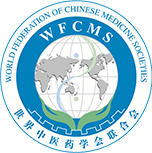China ready for larger contributions to global health
Release time: Apr 26,2022
Reading volume: 1608

Scientist Tu Youyou, a 2015 Nobel Prize laureate, does research in her lab in Beijing on May 31, 2021. [Photo/Xinhua]
President Xi Jinping said on Monday that China stands ready to make greater contributions to the health of humanity by enhancing public health exchanges and cooperation with the international community.
Xi made the remarks in a congratulatory message to the International Forum on the 50th Anniversary of the Discovery of Artemisinin and on Building a Global Community of Health for All in Beijing.
China has saved millions of lives worldwide, especially in developing countries, by promoting the global application of the substance, which was first discovered in and extracted from Artemisia annua by Chinese scientists, contributing significantly to the prevention and control of malaria around the world, Xi said.
Artemisinin has helped China eliminate malaria, Xi said, adding the country hopes to work with the world to tackle global threats and challenges and build a global community of health for all.
Monday marks World Malaria Day. It is a United Nations 2030 Agenda for Sustainable Development goal to end malaria, a life-threatening disease that poses long-term public health issues in many areas, especially in sub-Saharan Africa.
Citing World Health Organization statistics, State Councilor and Foreign Minister Wang Yi, who read out Xi's message at the forum, said about 240 million people in sub-Saharan Africa have benefited from artemisinin-based combination therapies.
By the end of 2021, China has provided artemisinin-based medications enough for billions of people, trained tens of thousands of anti-malaria technicians for developing countries, and built malaria prevention and control centers for 30 countries, Wang said.
The Chinese people have always stood with people around the world to tackle public health challenges, including SARS and Ebola, Wang said, adding China has conducted the largest emergency humanitarian operation since its founding to fight the COVID-19 pandemic.
Scientist Tu Youyou, a 2015 Nobel Prize laureate and her team were inspired by ancient traditional Chinese medicine literature to discover artemisinin in 1971.
Noting an increase in malaria's morbidity and mortality in recent years, Tu said the mosquito-borne infectious disease remains a serious public health challenge to the world at the forum in a prerecorded video.
Artemisinin's discovery has contributed greatly to the fight against malaria in Senegal, Senegalese President Macky Sall said via video link, adding China has been helping Senegal to fight malaria for more than a decade in numerous ways.
"It (artemisinin) is the core compound of the most effective anti-malarial medicines we have today," Zsuzsanna Jakab, the World Health Organization's deputy director-general, said in a video speech. Jakab extended her congratulations to China on getting malaria-free certification in June 2021, a WHO recognition of countries that have reported zero malaria cases for three straight years.

